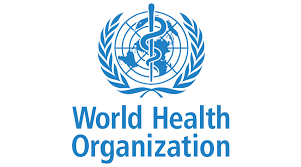
World Health Organization

Job Description
<!–
Description
–>
PURPOSE OF POSITION
The objective of the IARC is to promote international collaboration in cancer research.
- The Early Detection, Prevention, and Infections (EPR) Branch focuses its research on the evaluation of multi-level/multi-component interventions (i.e., vaccination, screening) to decrease cancer incidence, improve cancer early diagnosis, and decrease cancer mortality in high- and low- and middle-income countries using a wide range of methodological frameworks. EPR studies will contribute towards WHO global cervical cancer and Hepatitis elimination targets for 2030, as well as WHO global breast cancer initiative targets.
- The position provides support in advanced quantitative methods, epidemiological modelling, biostatistical and data analyses in the Public Health Decision Science (PHDS) Team and the EPR Branch, focusing on but not limited to cervical cancer.
DESCRIPTION OF DUTIES
Under the supervision of the EPR scientists, the incumbent is expected to:
Provide support of epidemiological modelling and data analyses to the EPR Branch and more specifically the PHDS Team by:
- Writing own or adapting existing scripts and analytical packages for preparation of input parameter to be used for epidemiological modelling regarding including but not limited to cervical cancer prevention (estimation and imputation of epidemiological indicators of cervical cancer, estimation of performance indicators of cervical cancer screening and HPV vaccination, systematic reviews and meta-analyses) using data obtained from internal or external collaborators and other sources such as public repositories.
- Writing own or adapting existing scripts and analytical packages for running dynamical transmission model for cancer-related infections focusing but not limited to cervical cancer.
- Contributing to study design and questionnaire design of new studies conducted by the Team or Branch in collecting novel data to be used in epidemiological modelling.
Assist the PHDS Team and EPR Branch scientists in biostatistics and data analysis by:
- Developing or adapting conceptual statistical and mathematical frameworks for data analyses including (but not limited to) tertiary analysis, data integration, interpretation, visualization, and submission to central repositories.
- Formulating and executing statistical analysis plans.
- Formatting and communicating data user-friendly reporting and visualization for inclusion in scientific presentations and publications.
Participate in the Agency’s central epidemiological modelling and biostatistics activities:
- Ensuring that the newly deployed methodologies in the PHDS Team and the EPR Branch are available across IARC and to the wider scientific community, as appropriate.
- Sharing expertise with epidemiological modelling and biostatistics in other IARC groups by participating in working groups, seminars, and internally organized trainings.
- Interact with other groups at IARC, in particular the Information Technology Services (ITS) and provide input as to whether the high-performance computing and information technology resources developed at IARC meet the needs of the EPR branch; this may include membership in the IARC Biostatistics and Bioinformatics Steering Committee.
- Interact with external collaborators wherever relevant epidemiological modelling, biostatistics and data analysis knowledge is required, by discussing issues of common interest related to large data sets and their analysis for collaborative projects.
- Keep abreast of technological developments of resources and tools of epidemiological modelling and biostatistics and tools relevant to the projects conducted in the PHDS Team and the EPR Branch, producing regular activity reports and presenting progress and results during group and branch meetings.
- Perform other relevant duties as requested by the supervisor.
FUNCTIONAL SKILLS AND KNOWLEDGE
Essential:
- Knowledge of R for statistical computing and data visualization and of one or more scripting or programming languages (e.g., Python and Matlab).
- Good general understanding of cancer and infectious disease epidemiology.
Ability to:
- Design, optimize and implement epidemiological modelling and biostatistics workflows for analysis of complex data.
- Clearly communicate results to a variety of audiences both orally and in writing.
- Work autonomously and prioritize work in a demanding work environment.
- Create clear, concise figures for publications.
- Work harmoniously as a member of a team with people of diverse educational and cultural backgrounds.
Desirable:
- Knowledge of additional statistical packages and programming languages (e.g., SAS).
- Usage of Unix/Linux environment.
REQUIRED QUALIFICATIONS
EDUCATION
- Essential: Graduation from secondary school or equivalent, and subsequent training (BTS, DUT or equivalent) in epidemiological modelling, biostatistics, or related field.
- Desirable: University degree in epidemiological modelling, biostatistics, or related field.
PROFESSIONAL EXPERIENCE
- Essential: At least five years’ experience in epidemiological modelling and biostatistics part of which in programming (R) or related scripting languages.
- Desirable: Experience in research environment. Experience in high performance computing, cluster management, usage of Unix/Linux environment.
USE OF LANGUAGE SKILLS
- Expert knowledge of English is essential. Intermediate knowledge of French is desirable.
Source: https://careers.who.int/careersection/ex/jobdetail.ftl?job=2406874
<!—
Recommend your friend
<!–
–>
Ability to:
To help us track our recruitment effort, please indicate in your cover/motivation letter where (globalvacancies.org) you saw this job posting.
Related Jobs
-

Sessional Lecturer – FAH251H1S Black Art in North America – EMERGENCY POSTING
University of TorontoToronto, ONToronto, ON -

2025 (May-Aug) | Sessional Instructional Asst. | RSM2123H | Intl Business in World Economy
University of TorontoToronto, ONToronto, ON -

Assistant Teaching Professor – Accounting
Ontario Tech UniversityOshawa, ONOshawa, ON -

Respiratory Therapist
Winnipeg Regional Health AuthorityWinnipeg, MBWinnipeg, MB
